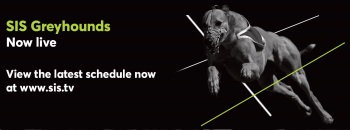1967 BAGS announce that they will recompense any bookmaker in the Greater London Area, to the sum of £25, if they can prove that their turnover for any four week period is under £4,000. This follows the NGRS decision to increase the annual BAGS fee to £75. Under the agreement with BAGS, the society is guaranteed a minimum of £200,000 per year for providing the service.
1965 Walthamstow abandon a Saturday night meeting when random sampling reveals that a number of dogs due to contest the last three races had been doped. Scotland Yard are called in to investigate and the Stow management announce that, in future, every dog due to race at the track will be tested by the chromatography unit.

1998 Mary Harding is honoured with an ‘appreciation meeting’ following her decision to relinquish her contract on financial grounds.
1937 D McKenzies Demotic Mack is a warm 4-11 favourite to win the Orient Cup over 550 yards at Clapton, after winning heat and semi very easily. But after leading for most of the way, Mack is passed on the run-in by the 9-2 second favourite Kemp, who goes on to win by three-quarters of a length in 33.27. Earlier in the year Demotic Mack won the London Cup at Clapton and the Northern Flat at Belle Vue, and went on to reach the 1938 and 1939 English Derby finals.
1952 During the space of the month, locally trained Wimbledon runner Lizette becomes only the third greyhound ever to win the Puppy Derby and Puppy Oaks.
1981 The Breeders Forum manage to attract one of the country’s leading athletic coaches as a guest speaker, the AAA’s Frank Dick.
1962 Within two years of the legalising of betting shops, the Home Office announce that there are 13,340 currently trading.
1974 The Sporting Life are under pressure from the NGRC and readers following their decision to dispense with cards and results from provincial tracks. The action came after the life were duped into publishing a wrong result leading to a small betting coup. While the Life agree to a partial resumption of the results service, greyhound editor Archie Newhouse warns that provincial open race results will only be published if the winner’s prize is £100 or more.
1948 Kent owner trainer Fred Trevellion is offering a £100 reward for the return of open racer Trevs Dell. Interestingly, the dog was taken from a kennel containing 25 other dogs, some of whom had far superior form. There burglar alarm had been put our of action and there was no sign of forced entry.

2010 Otto Kueres becomes the third Belle Vue trainer to hand in his notice in five years. He plans to move to Ireland. Previous departures were John Walton and Mark Cutler who have both joined Sheffield. Meanwhile Henlow handler Chris Kyme departs for a contract at Hall Green.
1957 Salvo, possibly the most popular grader at Harringay contests his 100th race. It isn’t his ability that so endears the black Jan ’53 whelp to the locals, it is his appearance. As a pup he ran full throttle into a brick wall and badly damaged his snout. Reckoned to look like comedian Jimmy Durante, he is known at the North London track by his nickname, Snozzle.
1974 Shamrock Point proves he is without doubt the fastest pup in Ireland by adding the Texacloth Puppy Cup to the Irish Puppy Derby achieved a month earlier. The son of Monalee Champion and Gruelling Point set a new Newbridge 525 yard track record in the latter decider with a run of 29.08. His race record to date is eight wins and three seconds from eleven races.
1961 Harringay becomes the first track in London to have under-soil heating fitted. They are the second track in England to implement the system, Nottingham were the first.
1959 Going into the final month of the year, The Grand Champion has an unassailable lead on the sires table with 139 open wins followed by Champion Prince (105) and Barrowside (93).
1974 Brighton (& Hove) stage their final race over 525 yards and switch to 500 metres. The ‘retired’ track record of 28.17 held by Easy Investment is the fastest over that distance on any track in Britain.
1965 Greyhound writer Peter Piper questions whether Wembley afforded enough detail to the manufacturers when ordering their new parade coats. “The stripes for trap six were vertical instead of horizontal” he notes “I thought a baby zebra was being paraded.”













